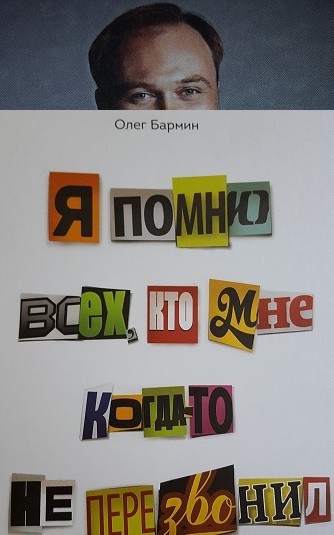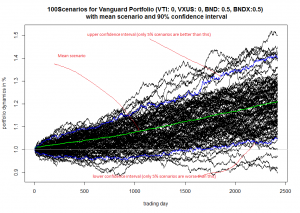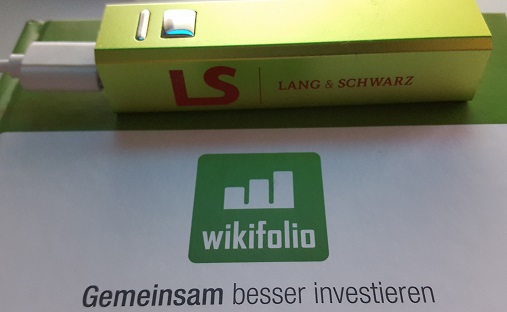Donald Trump's victory on 09.11.2016 was likely as surprising for markets as Brexit was. However, the expected (and factual) aftermath was completely different. This case is good to learn when you should urgently sell and when not Continue reading "Trump trade: case study of DAX intraday on 09.11.2016"
Continue reading "Trump trade: case study of DAX intraday on 09.11.2016"
Author: letYourMoneyGrow.com
Einstein’s rating agency: easy and clear for everyone
Recently we revied the performance of Einstein, a German trader who managed (without a leverage) to make almost 2000% in less than three years. LetYourMoneyGrow.com translates his investment grades in layman's terms:
- Tenbagger - the stock will grow ten times within 3 years.
- Doubler - the stock will grow twice with a year
- Outperformer - the stock will be better than peer group by factor 2
- Money - one may but not necessarily need to buy the stock
- No-hoper - one will neither lose nor earn money with this stock
- Pinocchio - the board does not get along with the truth
- Brief - one may but not necessarily need to sell the stock short
- Short - one can earn money if sells this stock short
- Snot - avoid buying this stock, do sell it short!
- Snot to the power of 10 - target zero, total loss, blacklist and megashort!
A Russian Frank Cowperwood: Oleg Barmin’s case from risk management point of view
 As I read Oleg Barmin's book "Я помню всех, кто мне когда-то не перезвонил" (I remember everybody who once did not call me back) I saw a lot of parallel to Theodore Dreiser's Financier Frank Cowperwood (Charles Yerkes). Like Cowperwood (who being a teenager bought and re-sold a soap with profit), teeny Barmin bought a frozen fish, smoked it and re-sold with profit. In the age of 21 he built a flourishing car business ... and like Cowperwood was wiped by crisis and was imprisoned (however, only on remand). Like Cowperwood, he rose again (in florist business). Though Barmin had not (yet) built something like London Subway, he is only 35 and who knows, maybe we will see more parallels with Cowperwood...
As I read Oleg Barmin's book "Я помню всех, кто мне когда-то не перезвонил" (I remember everybody who once did not call me back) I saw a lot of parallel to Theodore Dreiser's Financier Frank Cowperwood (Charles Yerkes). Like Cowperwood (who being a teenager bought and re-sold a soap with profit), teeny Barmin bought a frozen fish, smoked it and re-sold with profit. In the age of 21 he built a flourishing car business ... and like Cowperwood was wiped by crisis and was imprisoned (however, only on remand). Like Cowperwood, he rose again (in florist business). Though Barmin had not (yet) built something like London Subway, he is only 35 and who knows, maybe we will see more parallels with Cowperwood...
In spite of such praising summary the post is going to be critical: we will concentrate on what Oleg missed from risk management point of view.
Continue reading "A Russian Frank Cowperwood: Oleg Barmin’s case from risk management point of view"
My Fund Somewhat better than DUCKS is 1 year old: a festive but fair review
My wikifolio ("Somewhat better than DUCKS", ISIN: DE000LS9HDK3) is investable from 28.10.2016. It surely beats the DAX (main German stock index) both on absolute and risk-adjusted performance. Though I am very proud of my performance, I provide a closer look at it and show that sometimes I had just luck and sometimes I could have done better. I always preach for the rigorous and cold-blooded performance analysis and the best sermon is to demonstrate it by the example of myself.
Continue reading "My Fund Somewhat better than DUCKS is 1 year old: a festive but fair review"
The Maximum Drawdown succinctly explained in 3 minutes
The maximum drawdown (MDD) is likely the most important measure of risk in practice. We explain how to calculate it and why you should keep it under control. Remember, if the MMD reaches -50% the portfolio have to grow +100% in order just to compensate the previous loss!
A simple scenario simulator for Vanguard optimal portfolio
 There is yet another Roboadvisor from Vanguard Group. As any RoboAdvisor, its recommendations are far from perfection. However, I like it (at least more than others) because the Vanguard guys managed to make it simple. On the other hand I am quite disappointed that they do not show how a suggested portfolio may evolve (and I am quite sure that legendary John Bogle would be disappointed too). That's why I made a simple scenario simulator on my own. It is based on sample with replacement.
There is yet another Roboadvisor from Vanguard Group. As any RoboAdvisor, its recommendations are far from perfection. However, I like it (at least more than others) because the Vanguard guys managed to make it simple. On the other hand I am quite disappointed that they do not show how a suggested portfolio may evolve (and I am quite sure that legendary John Bogle would be disappointed too). That's why I made a simple scenario simulator on my own. It is based on sample with replacement.
Continue reading "A simple scenario simulator for Vanguard optimal portfolio"
Update (12.10.2016) to K+S, Lufthansa, Osram and WTI
Recently I wrote about K+S and Lufthansa, Osram and WTI Oil.
Let us review this opportunities:
1) K+S: as I expected, it grows. I reduced (with small profit) my position to 2% of portfolio and (so far) will be keeping it.
2) Lufthansa: I emphasized that though I, myself, bought a little bit, I don't recommend others to do it because the LHA stock is dubious. Further the stock fell about -8% and I sold it by stop-loss. Currenly it grew about 9% from its local minimum and I recommend to sell: Lufthansa might soon "fly out" of DAX.
3) Osram: as I expected, it falls. I watch it but IMO it is still prematurely to buy.
4) WTI Oil: as Putin announced that Russia supports OPEC, oil prices jumped 3% on 10.10.2016. I halved my position with a small loss. Currently oil gradually falls again and I keep the rest of my position. However, the risks are high.
Einstein – a star trader on Wikifolio, who can beat the market
Summary: In our previous post we reviewed Wikifolio.com, a FinTech project that lets everybody build a proven track record. Today we review the performance of Einstein's portfolio "Platintrader 1000% Leidenschaft" and explain why his performance is a matter of trading mastership, not of just luck.
Continue reading "Einstein – a star trader on Wikifolio, who can beat the market"
Wikifolio – a genuinely social trading and investment FinTech project
Update 30.07.2017: Unfortunately, Wikifolio turned out to be not a genuinely social FinTech but rather yet another attempt to make quick money at costs of retail investors. Here we explain why (in German). But we keep the original post below for historical purposes.

Summary of advantages:
- Wikifolio allows everyone to build a proven track record. If a portfolio meets some simple requirements, an ETF on it can be issued. Technically such ETFs are issued like certificates by Lang & Schwarz and are traded by L&S directly and on the Stuttgart Exchange.
- Wikifolio adheres to maximum disclosure policy: in particular, for every portfolio they provide complete trading history in real time.
- Wikifolio is very suitable for the strategies that imply frequent trading since there is no costs per trade (only bid-ask spread and all-in fee of 0.95% p.a.)
- Wikifolio liberates portfolio management from regulatory cram and lets investors meet the portfolio managers directly (without expensive and dubious middlemen). At the same time the investors do not need to transfer their money directly to portfolio managers, so there is virtually no scam risk.
- Last but not least, numerous successful traders on Wikifolio clearly disprove the mantra that "nobody can beat the market".
Continue reading "Wikifolio – a genuinely social trading and investment FinTech project"
Calling an R-script from PHP: pitfall with loading R-packages
We continue developing letYourMoneyGrow.com and soon will make the first tool from the promised portfolio optimization toolset publicly available. And so far a small technical report. We implement the core business logic in R and wrap-up it with PHP. Calling Rscript from PHP via exec("Rscript ...") seems to be easy ... as far as you don't use any libraries. And if you do, you will get an error message like Error in library(RMySQL) : there is no package called 'RMySQL'. Fortunately, there is a solution. However, note that a loaded package may depend on other packages. For instance, RMySQL depends on DBI. Thus you should explicitly resolve this dependency in your R-code like this:
library(DBI, lib.loc = c("/home/<yourUsername>/R/x86_64-pc-linux-gnu-library/<yourRVersion>", "/usr/local/lib/R/site-library", "/usr/lib/R/library"))
library(RMySQL, lib.loc = c("/home/<yourUsername>/R/x86_64-pc-linux-gnu-library/<yourRVersion>", "/usr/local/lib/R/site-library", "/usr/lib/R/library"))
